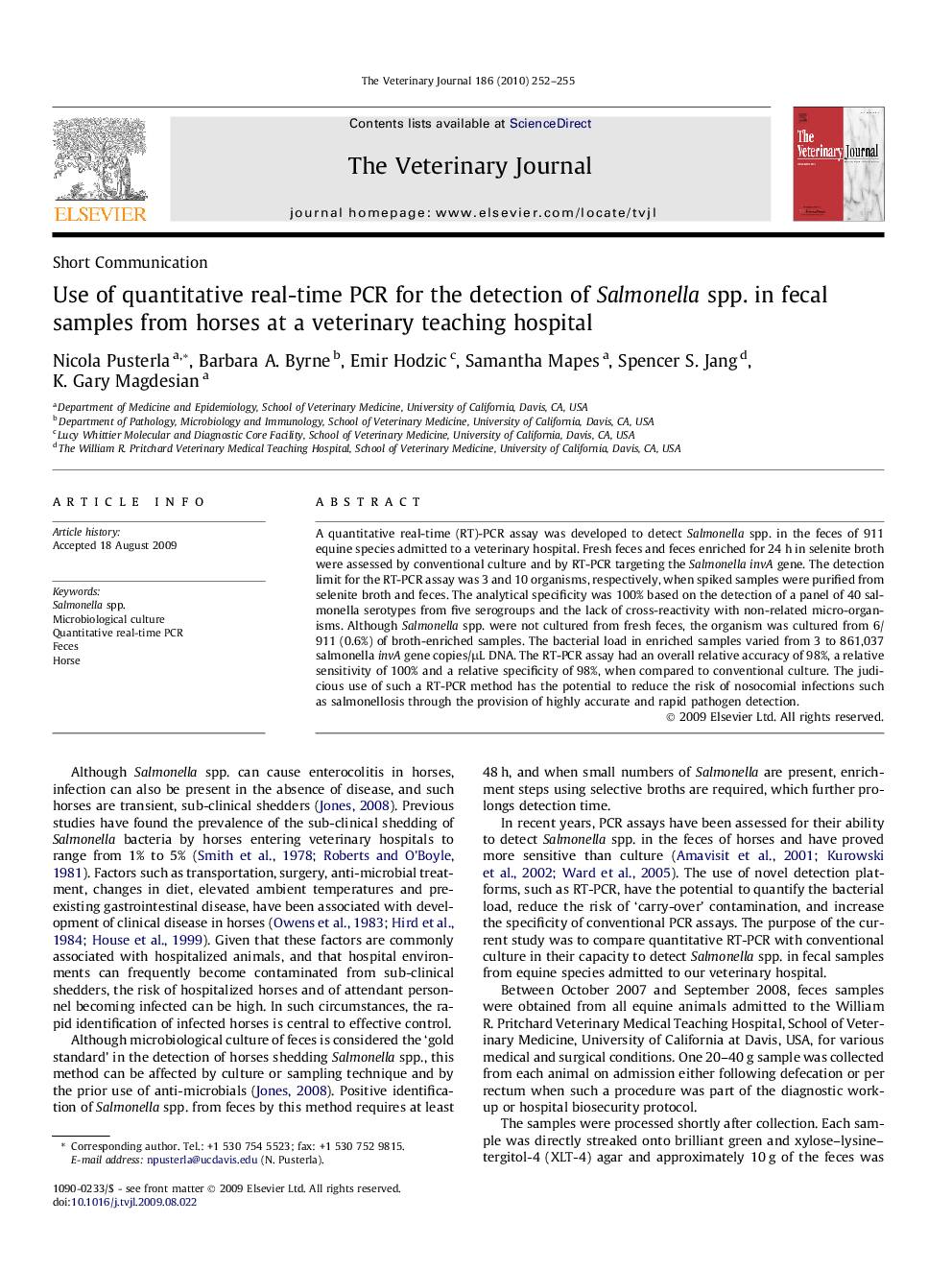| Article ID | Journal | Published Year | Pages | File Type |
|---|---|---|---|---|
| 2464927 | The Veterinary Journal | 2010 | 4 Pages |
A quantitative real-time (RT)-PCR assay was developed to detect Salmonella spp. in the feces of 911 equine species admitted to a veterinary hospital. Fresh feces and feces enriched for 24 h in selenite broth were assessed by conventional culture and by RT-PCR targeting the SalmonellainvA gene. The detection limit for the RT-PCR assay was 3 and 10 organisms, respectively, when spiked samples were purified from selenite broth and feces. The analytical specificity was 100% based on the detection of a panel of 40 salmonella serotypes from five serogroups and the lack of cross-reactivity with non-related micro-organisms. Although Salmonella spp. were not cultured from fresh feces, the organism was cultured from 6/911 (0.6%) of broth-enriched samples. The bacterial load in enriched samples varied from 3 to 861,037 salmonella invA gene copies/μL DNA. The RT-PCR assay had an overall relative accuracy of 98%, a relative sensitivity of 100% and a relative specificity of 98%, when compared to conventional culture. The judicious use of such a RT-PCR method has the potential to reduce the risk of nosocomial infections such as salmonellosis through the provision of highly accurate and rapid pathogen detection.
